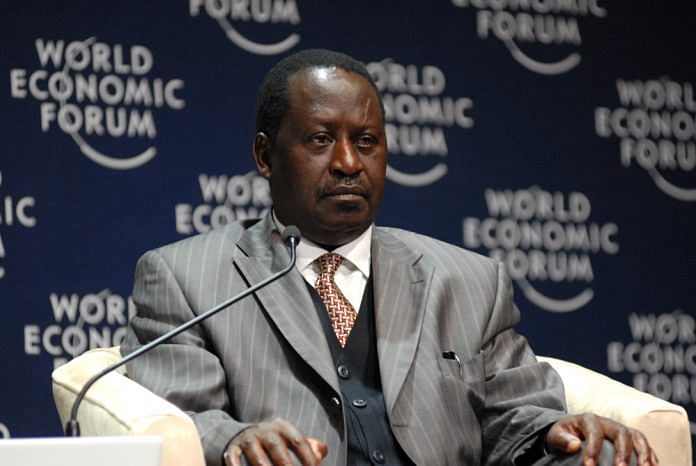Kenya’s Chief Justice is a national hero
The chief justice of Kenya’s Supreme Court just became a national hero. In a first in not just Kenya, but even Africa, his court invalidated last month’s re-election of President Uhuru Kenyatta, citing “irregularities and illegalities” in the polls. The verdict, which sends Kenya back to polls, left everyone, including the opposition leader, stunned.
In fact, Raila Odinga went so far as to say that he was never really expecting a “fair decision” from the court, and his petition to overturn the vote was only a way of publicising his contention of the election being a fraud. So low was the public confidence in the country’s judiciary, that it was Kenyatta himself who had urged Odinga to take the disputed poll result to the court and not resolve it in the streets. Stunned by the verdict, he’d now have to prepare for the polls within 60 days.
Trump is busy alienating the South Koreans
Why would Trump choose to criticise South Koreans right now? At a time when even China and Russia are uniting in opposition to North Korea’s sixth and most powerful nuclear test, South Koreans are left scratching their heads. After North Korea conducted its test, Donald Trump did not speak to his South Korean counterpart. Instead, he took to Twitter to dismiss Seoul’s actions as “appeasement”.
Moon Jae-In has consistently advocated engagement with North Korea – a suggestion Trump himself had repeatedly made during his campaign trail, when he said he’d be happy to have a burger in a boardroom with Kim. South Koreans are only too aware that they’re dealing with an unpredictable US president. “Opinion polls show South Koreans have one of the lowest rates of regard for Trump in the world and they don’t consider him to be a reasonable person…In fact, they worry he’s kind of nuts, but they still want the alliance,” a former US State Department official said.
Brexit could leave Britain’s royal family deeply upset
Britain’s landed gentry and Queen may not be very pleased with Brexit – or at least with one of its consequences. Once Britain is out of the European Union, the decision to continue, stop or curb public subsidies or handouts to the titled and entitled would be inherited by the British Parliament, which could put the practice in peril. The decision on the matter has hitherto been sheltered by EU’s widely criticised Common Agricultural Policy.
“It’s completely indefensible…The only way we have been able to defend it in the past is that it is a European Union system,” an opposition Labour Party lawmaker said. But with the British government arguing for years that the country spends too much on agriculture, it would only be logical to not have such high subsidies,” he said. If numbers could grasp the scale of the politically explosive issue, it may be useful to remember that last year, the duchy received more than $130,000 in European Union subsidies.
Merkel and Schulz attack Trump, not each other in German debate
Just weeks before Germany decides whether to give Chancellor Angela Merkel another four years in office, she and her main rival are not attacking each other. Their snark is instead reserved for the US president.
In a debate between Merkel, who seems set to win about 40 percent of the vote, and Martin Schulz, the two only mildly disagreed on issues, if at all. Schulz, who is the leader of the country’s center-left Social Democratic Party, was explicit in his criticism. Trump has “brought the world to the edge of a crisis”, he said. Merkel, who was less unequivocal about her reservations with Trump, nevertheless submitted that climate change and violence in Charlottesville were areas with “very clearly major differences”.
‘A chilling setback on freedom of expression in Palestine’
Unpopular and ageing, the president of the Palestinian National Authority is becoming increasingly authoritarian. In a desperate bid to cling to power, Mahmoud Abbas has unleashed a crackdown on dissenting media and individuals, with “arbitrary arrests, violent interrogations, confiscation of equipment, physical assaults and bans on reporting,” becoming routine.
“This is a chilling setback for freedom of expression in Palestine. By rounding up journalists and shutting down opposition websites, the Palestinian authorities in the West Bank and the Gaza Strip appear to be using police-state tactics to silence critical media and arbitrarily block people’s access to information,” says an Amnesty worker. In July this year, Abbas introduced the highly controversial Electronic Crimes Law, which allows prosecutors to fine or detain anyone who is perceived to be critical of the authorities online on the grounds of “disturbing public order”, “national unity”, “social peace” or “contempt of religion”. More often than not, those targeted are journalists or whistleblowers.



